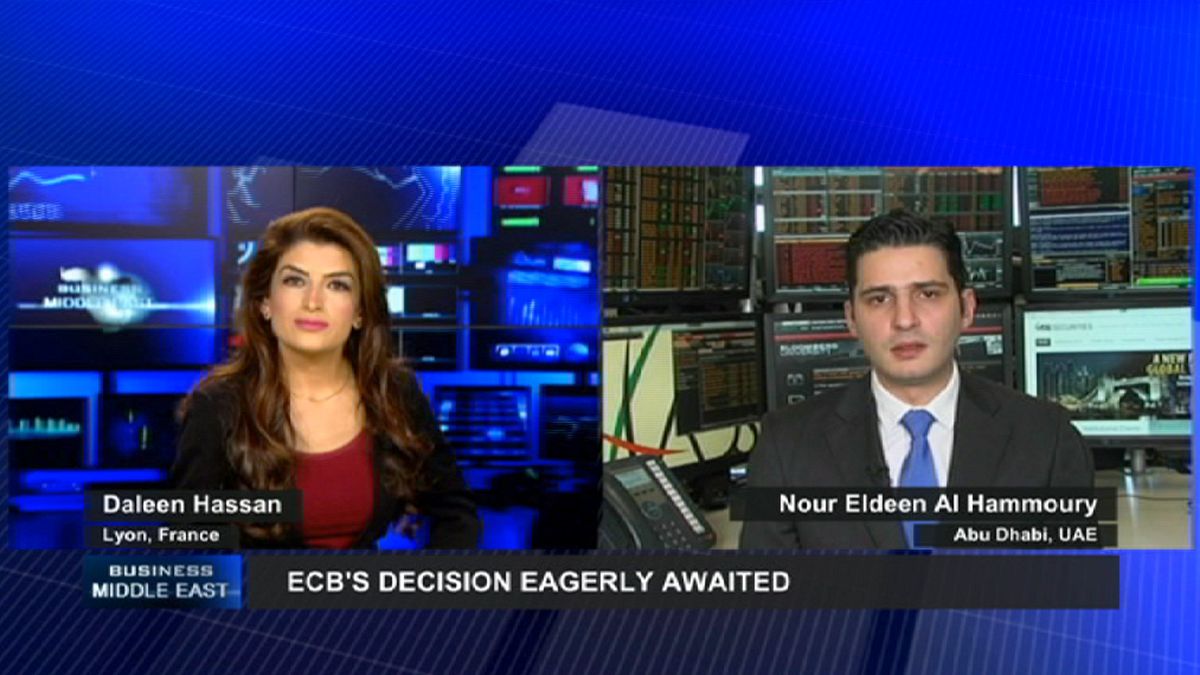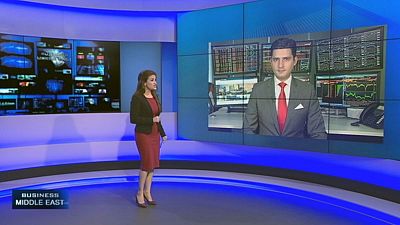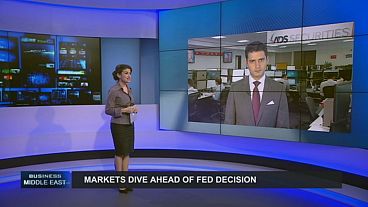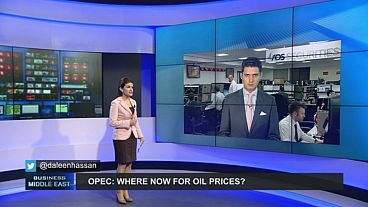Business Middle East is our new weekly programme examining a major economic issue in this crucial global region and assessing the world economy’s overall influence on it.
In this edition we look closely at how the upcoming European Central Bank´s decisions could affect the Arabian markets.
September 4 is a decisive day, not just for European but also Arabian markets, both of which have been struggling since June.
Investors are placing huge expectations on ECB chief Mario Draghi.
ECB under pressure
Pressure is growing on the ECB to take serious measures to stop inflation decline.
In June, the ECB became the first major central bank to use a negative deposit rate. After reducing the benchmark interest rate to a record-low 0.15 percent. European markets rallied, gaining more than one percent.
Despite the ECB’s policy easing these gains were temporary. The markets suffered from substantial selling pressure in July and recovered some of these declines in August.
In the Middle East analysts and investors were banking on a positive reaction, however those markets tumbled significantly in June due to geopolitical tensions. But a recovery has been seen throughout July and August.
Investors’ attentions are shifting to Frankfurt this week amid speculation new measures could be announced.
All eyes will be on Mario Draghi’s forthcoming press conference, which may include notable changes to current policy that could impact on the markets in the near future.
Analyst expectations
To shed light on these issue euronews’ Daleen Hassan spoke to ADS Securities’ chief market strategist Nour Aldeen Alhammoury in Abu Dhabi.
Daleen Hassan, euronews: “What are your expectations about the European Central Bank’s decision this week? Do you think we are going see more interest rate cuts?”
Nour Aldeen Alhammoury: “The recent economic releases suggests another action very soon, if the ECB leaves policy unchanged next Thursday, then they might move October.
“We believe that the least the ECB can do is to cut the minimum bid rate to 0.10% for now. However, this move won’t be enough as the fears now are rising for a significant slowing down in eurozone growth rates due to the Russian sanctions. So the bank is likely to start with a rate cut for now, while the QE could be announced in the October meeting.”
euronews: “As we know there is always an important link between the European and Arabian markets. What impact can Draghi’s decision have on those markets?”
Nour Aldeen Alhammoury: “The previous meeting wasn’t pretty for MENA markets, as we all know about the geopolitical tensions in Iraq which added fears that it might spread to a regional war.”
euronews: “So do you think it will be the same?”
Nour Aldeen Alhammoury: “This time it’s different. Fears are gradually easing as there is some sort of international collaboration between the west and the Middle East, including Iran to face these tensions. Therefore, this time MENA markets may continue with their recovery, especially now that the volume is picking up again, as the summer vacation is over and investors are likely to benefit from these easing policies across the globe and the outflows from Europe.”



